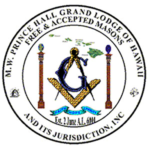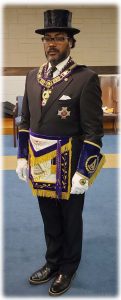Prince Hall (c. 1735–1738—1807) was an African American noted as an abolitionist for his leadership in the free black community in Boston and as the founder of Prince Hall Freemasonry. He lobbied for education rights for black children and was active in the back-to-Africa movement.
Hall tried to gain New England’s enslaved and free blacks a place in Freemasonry, education and the military, which were some of the most crucial spheres of society in his time. Hall is considered the founder of “Black Freemasonry” in the United States, known today as Prince Hall Freemasonry. Hall formed the African Grand Lodge of North America. Prince Hall was unanimously elected its Grand Master and served until his death in 1807.
Steve Gladstone, author of Freedom Trail Boston states that Prince Hall—known for his role in creating Black Freemasonry, championing equal education rights, and fighting slavery—”was one of the most influential free black leaders in the late 1700s.”
There is confusion about his year of birth, place of birth, parents, and marriages–at least partly due to the multiple number of “Prince Halls” during this time period.

